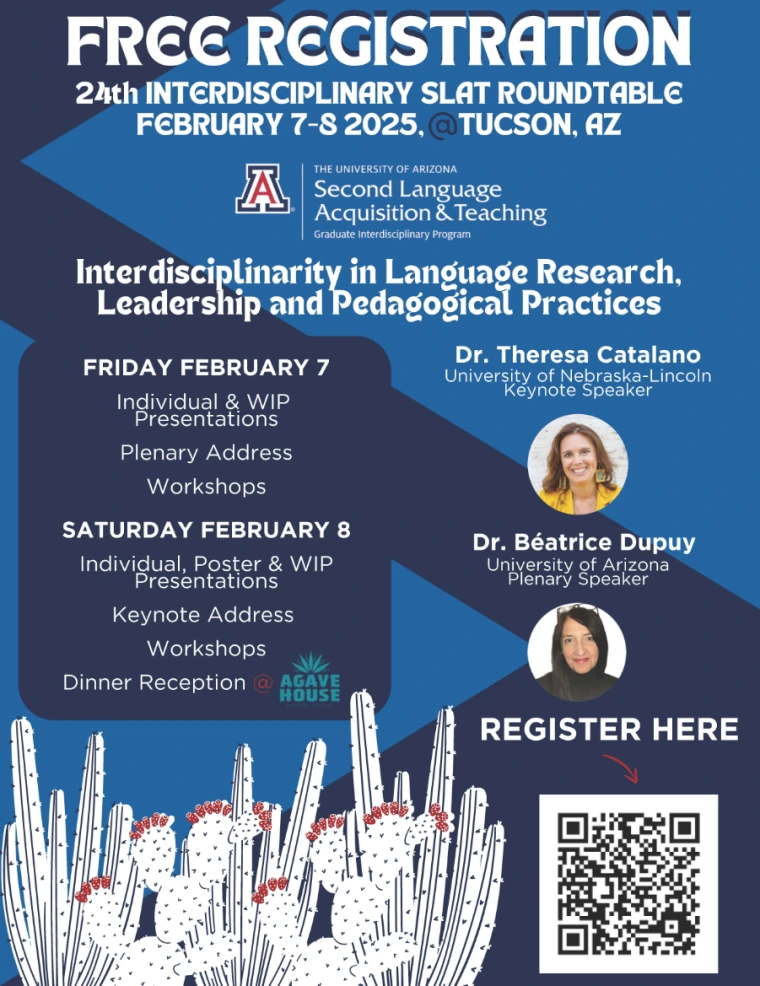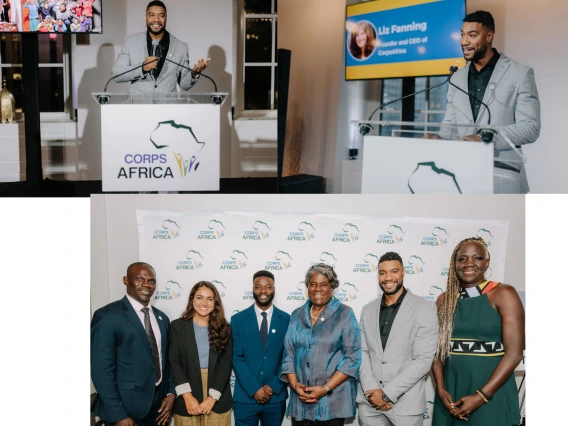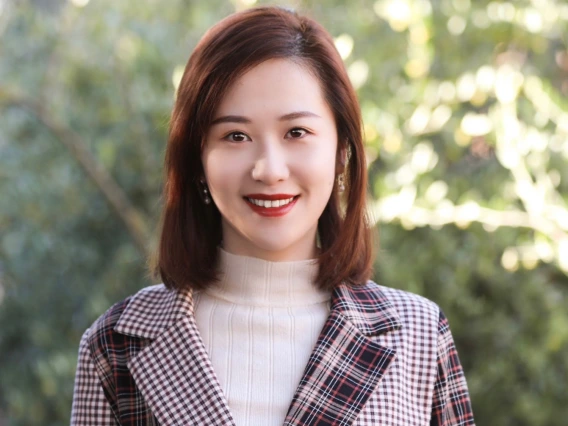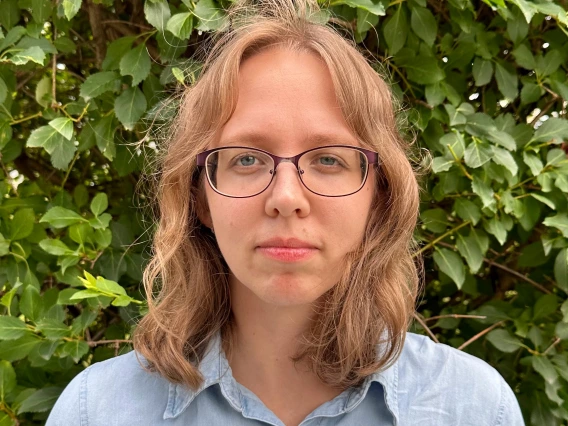A student-planned interdisciplinary roundtable conference for all SLAT community members, and students and faculty from other universities
When
12 p.m. – 5 p.m., Feb. 7, 2025
The SLAT Interdisciplinary Roundtable is a student-run annual conference at the University of Arizona. The conference is open to scholars around the world, and the topics that are usually covered fall under the different Second Language Acquisition and Teaching areas of specialization (Instructional Dimensions of L2 Learning, Sociocultural Dimensions of L2 Learning, Cognitive Dimensions of L2 Learning, and Linguistic Dimensions of L2 Learning).
The Second Language Acquisition and Teaching Student Association (SLATSA) cordially invites you to attend the 24th SLAT Interdisciplinary Roundtable, held in person at the University of Arizona on Friday, February 7 and Saturday, February 8, 2025. Registration is free, and the deadline to register is January 21, 2025.
The theme for this year is “Interdisciplinarity in Language Research, Leadership and Pedagogical Practices”. We will be hosting our plenary and keynote talks by Dr. Béatrice Dupuy and Dr. Theresa Catalano, alongside a diverse lineup of individual presentations, projects-in-progress, workshops and a poster session.
All presentations will be held in the Integrated Learning Centre (ILC) at the University of Arizona, Tucson main campus.
REGISTER HERE
The conference program schedule will be finalized soon. Stay tuned, and please regularly check the Roundtable official website for upcoming updates.
Feel free to contact Lorraine Turpault d'Huvé (lorrainetdh@arizona.edu) and Subin Oh (osubin@arizona.edu) with any questions.
Thank you for your participation. We look forward to seeing you in Tucson in February!







